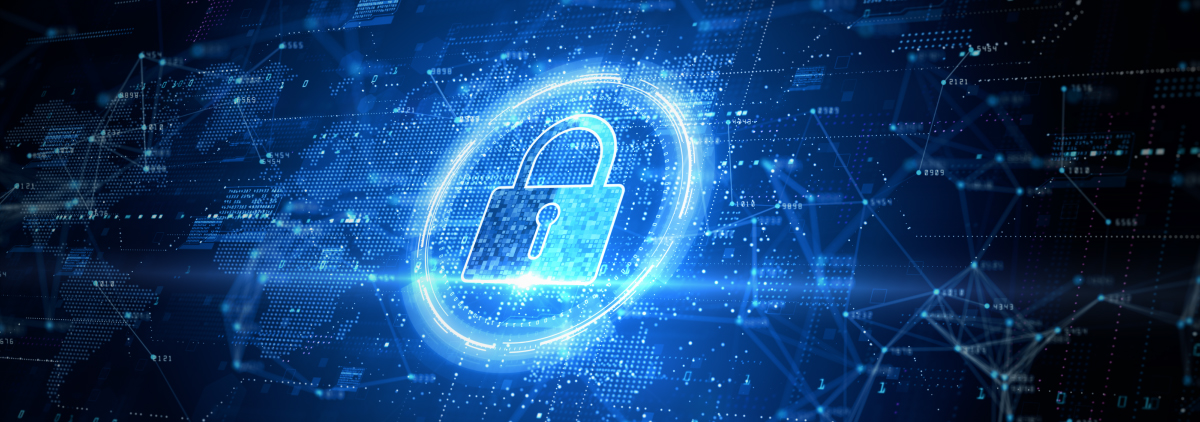Navigating cybercrime and the importance of cybersecurity
Supply chain ransomware attacks are on the up, but leading industrial players such as GDM are one step ahead of the game and are attaching growing importance to cybersecurity.
Cybersecurity: a changing landscape
On July 2, 2021, Kaseya Limited - an IT solutions developer for Managed Service Providers (MSPs) - fell victim to a supply chain ransomware attack. Kaseya urged its clients to shut down their remote monitoring and management systems to prevent threat actors from distributing ransomware through the software. But it was too late. In the end, 50 direct customers and up to 1,500 businesses downstream were compromised by the attack[1][2].
Today’s cybersecurity landscape is changing at neck-breaking speeds. As new attack vectors, actors, regulations and directives come into the fold and the number of critical failure points increases, it is hard for companies to keep a handle on the situation.
And the COVID-19 pandemic has hardly helped matters. The mass migration to remote work in 2020 accelerated the large-scale adoption of web-based platforms and devices[3], resulting in a +435% rise in ransomware attacks (a type of malicious software designed to block access to a computer system until a sum of money is paid) and a +358% rise in malware[4] (a catch-all term for any type of malicious software designed to harm or exploit any programmable device, service or network)[5].
This increase in cybercrime left many IT teams fighting fires as they attempted to prevent threat actors from launching attacks on personal connections, using the Internet-connected devices in employee homes as entry points to corporate networks.[6][7]
As businesses start to digitalize their physical supply chains, they are unwittingly leaving themselves open to new vulnerabilities, sophisticated attacks and ransomware threats. The average ransom costs doubled in 2021 alone[8] and only 8% of businesses that paid a ransom got all of their data back.[9]
The importance of adopting adequate protections against cybercrime
It will come as no surprise that cybersecurity is becoming incredibly important for companies of any size operating in and outside the Disposable Hygiene industry. Although new technologies can help improve efficiency, quality and productivity, these developments also expose companies to novel forms of cyber risk.
Cybercrimes such as ransomware cost businesses hundreds of millions of dollars a year and malware threats can have grave consequences on production chains, causing businesses to lose out on money, time and productivity[10].
One of the most proactive ways businesses can prepare for potential attacks is to ensure their OEMs have put adequate protections in place to prevent exposure to vulnerabilities and financial risk. In addition, time has come for businesses to take heed of international cybersecurity standards such as IEC 62443, which recommends a series of cybersecurity processes, policies and procedures for industrial automation control systems.
Companies can also benefit from adopting a comprehensive approach to cybersecurity, ensuring that their security packages cover all bases, including apps and services, hardware platforms and components, operating systems, and external application programming interfaces (API).
GDM’s approach to cybersecurity in an increasingly digital world
Companies in the Disposable Hygiene industry may feel overwhelmed by the increasingly complex task of protecting themselves against cyber threats, but GDM can help break the process down into manageable chunks.
We have always closely monitored the cybersecurity of our internal systems and have considered, analyzed and optimized all aspects of our business.
At GDM, we understand that cyber is playing an increasingly important role in digitally focused industrial sectors, and we have made it our mission to focus on training to create a culture of safety at our company and client companies. We have also dedicated our efforts to the digital development of the industry, investing a significant percentage of the turnover each year.
Cybersecurity demands have only been compounded by the increased reliance on virtual machines, cloud environments, IoT devices, and digital production chains, to name but a few.
We have adopted a holistic approach and are turning our attention outward by exporting our services, providing clients with advice, and ensuring that our end customers comply with international standards and mandatory directives.
In short, it is important to remember that cybersecurity:
- Protects entire organizations, not just IT systems
- Improves the resiliency of industrial networks
- Keeps critical systems running
- Protects the financial results and reputation of organizations
It can take years to recover from a devastating ransomware attack such as the one suffered by Kaseya in 2021, which is why pre-empting and managing risks with a robust cybersecurity policy is so important.
By following the guidance of GDM and adopting a holistic approach to networks and assets, companies in the industrial sector can effectively streamline their security policies and practices, thereby standing themselves in good stead for future success.
Head to GDM’s website to learn more about GDM’s approach to business and how we can help customers cover all bases.


